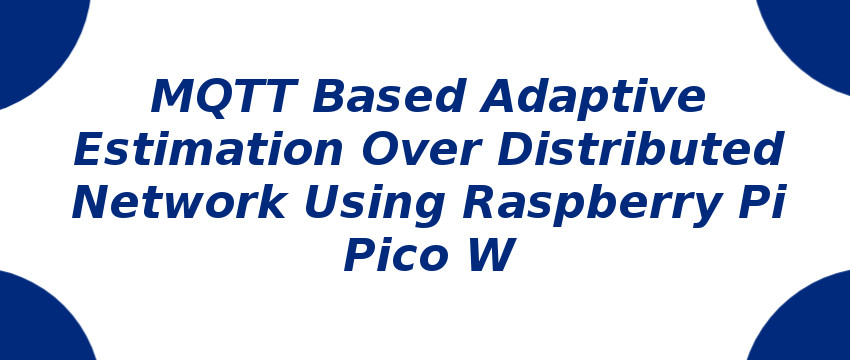Research Area: Internet of Things
As the demand for edge computing applications continues to rise, the need for efficient training of resource-constrained devices becomes paramount. This letter proposes MQTT-based implementation of distributed estimation strategies in the context of the Internet of Things (IoT), namely incremental, consensus and diffusion strategies. The use of Raspberry Pi Pico W in the emulation environment is motivated by its advanced capability, while the MQTT data protocol is employed to address the constraints associated with conventional HTTP/HTTPs protocols. Synchronisation in an IoT network is achieved by the integration of a novel methodology that entails the use of the wait-for-slowest (WFS) protocol and MQTT protocol. Furthermore, the development of a GUI supported by the Django application allows for adjusting parameters in distributed strategies through the HTTP REST API, along with SQLite. The results acquired from hardware experiments exhibit a strong correlation between the mean-square performance achieved from simulation studies. The distributed estimation strategy is compared with state-of-the art centralized and non-cooperation estimation strategies, demonstrating its superior performance. In addition, a study is conducted on the resilience of these IoT networks in the face of several network threats, such as node failure and model poisoning attacks. A theoretical analysis is provided to explain the relationship between the number of iterations and node failure.
Keywords:
Author(s) Name: Prantaneel Debnath, Anshul Gusain, Parth Sharma, Pyari Mohan Pradhan
Journal name: IEEE embedded systems letters
Conferrence name:
Publisher name: ResearchGate
DOI: 10.1109/LES.2024.3473017
Volume Information: Volume: 9, (2024)
